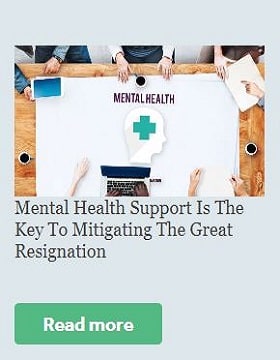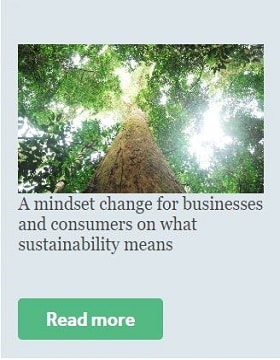
Insurance Insights

Using A LinkedIn Video Strategy To Boost Engagement
Workplace Mental Health | Encouraging A Proactive Culture
11 October 2021

Workplace Mental Health | Encouraging A Proactive Culture
by Iris Ng, our account manager at the Sandpiper Singapore office Iris has a strong background in traditional and digital content strategies for clients across professional and financial services, hospitality and government sectors.
As we continue to navigate the changes in our workplaces due to coronavirus, alarming evidence is appearing that employers and organisations face a new challenge —- workplace mental health. Amid such uncertain times, it’s natural for us all to feel anxious, worried and afraid for what the future holds. But how can employers create open conversations about mental health in the workplace? As we emerge from lockdowns and the back-and-forth of quarantine rules, we’re all a bit weary and troubled, so it makes sense to turn to our employers for help and guidance. Increasingly, employers are understanding the importance of investing in mental health policies and creating a culture of open conversations to ensure a culture of proactively identifying and supporting mental risk challenges.
Mental health as the second pandemic
Studies have found and experts agree that as we continue to battle the spread of covid, mental health challenges will rise. Employers should therefore commit as many resources as possible to protect staff mental wellbeing. Worldwide, we’re all suffering with increased anxiety, worrying about the future and navigating the significant lifestyle changes that come with living with coronavirus. With isolation comes a lack of connection to the community, so staff may not have the typical avenues to seek help or even just feel a sense of belonging.
Workplace mental health trends
As the world embarks on the new frontier of living with covid, employers are increasingly looking to support pandemic-weary staff as they begin returning to the office or perhaps working in a hybrid, flexible model, combining working from home with time in the office. Company leaders will need to be prepared to monitor employee mental health while not being physically present with them, and determine ways to check in virtually. A survey from U.S. based Enterprise Technology Research, expects the percentage of full-time remote workers around the world to double from 16.4% before the coronavirus outbreak to 34.4% in 2021.
To meet this need, we are likely to see the rise of employee resource groups, or affinity groups. These employee-led groups can help foster employee engagement and act as a barometer for broader mental health trends in the workforce. It’s likely that investing in workplace mental health training, equipping leaders to better recognise the mental wellbeing of their teams, to create environments where people feel safe and enabled to perform at their best in an increasingly complex working world. Investing in custom workplace training can help individuals build their capacity to manage their own wellbeing, as well as better incorporating mental wellbeing into organisational strategy.
Harvard Business Review predicts that towards the end of 2021 and into 2022, employers will continue to de-stigmatise mental health. Building awareness on a cultural level, expanding benefits and ensuring mental health investment is a permanent line item on annual budgets will be the new normal for employers of all sizes.
The case for investing in mental health education
Even though the worst of the pandemic is (hopefully) behind us thanks to vaccines, organisations still face an uncertain road ahead and different challenges are now emerging. The traditional employee approaches for building resilience may not be enough, and organisations need to fortify their resources so they can stay strong, productive and mentally well as we head into an equally challenging 2022.
Investing in mental health training will give leaders and staff knowledge about how the psychological impact of the pandemic can help people make sense of how they’re feeling, and equipping them to understand how their thoughts, feelings and behaviours can shape their mindset and influence those around them. Using evidence-based strategies to help people think about what they can proactively do to manage their mental health will ensure that teams are better equipped for any future challenges that lie ahead.
Flexible workplace policies for leaders and teams
One of the key challenges for workplaces is caring for the carers. Leaders and managers are tasked with protecting the mental health of their teams while potentially struggling themselves. Any efforts to provide support can become a double-edged sword. For example, giving a team member a day off if needed is a welcome and generous gesture, but when others need to pick up the slack, the workload only compiles, leading to ongoing stress or simply rerouting the problem to another person. Therefore, a comprehensive mental health program will ensure that the leaders are supported as significantly as their teams. Relaxing of deadlines, communicating with clients about expectations or investing in extra support via temporary staff can ensure staff wellbeing policies don’t result in unintentional repercussions.
Flexible workplaces seem to be the key to a new work normal. According to Forbes, a US study found that 80% of workers believe more flexibility will help them take care of their mental health. Two thirds of participants would like to work remotely full time while the remaining third would like to have a combination of in-office and remote time.
But it’s not just the physical location that requires flexibility, with flexitime also a potential driver of mental wellbeing. Abandoning the nine-to-five mentality and allowing employees to manage their own work days may reap considerable benefits. Allowing employees to choose their own working schedule ensures they have time for activities that contribute to their wellbeing, particularly exercise and family time. According to business.com, the benefits of flexitime include better work-life balance and improved wellbeing. For employers, it also helps attract and retain top talent as well as potentially boosting productivity.
Building a culture of open conversations
Employees will only feel comfortable being transparent with employers if they feel they’re in a safe space, free from judgement and stigma. So it takes a top-down commitment for organisations to embrace a culture of open conversations. It’s important that leaders feel equipped to respond appropriately if someone confesses they’re suffering mental health problems. Thus, encouraging a culture of checking in regularly, and training staff on how to respond to signals of mental distress are essential to building a new sense of proactivity and normalisation when it comes to mental health in the workplace.
You may also like:




